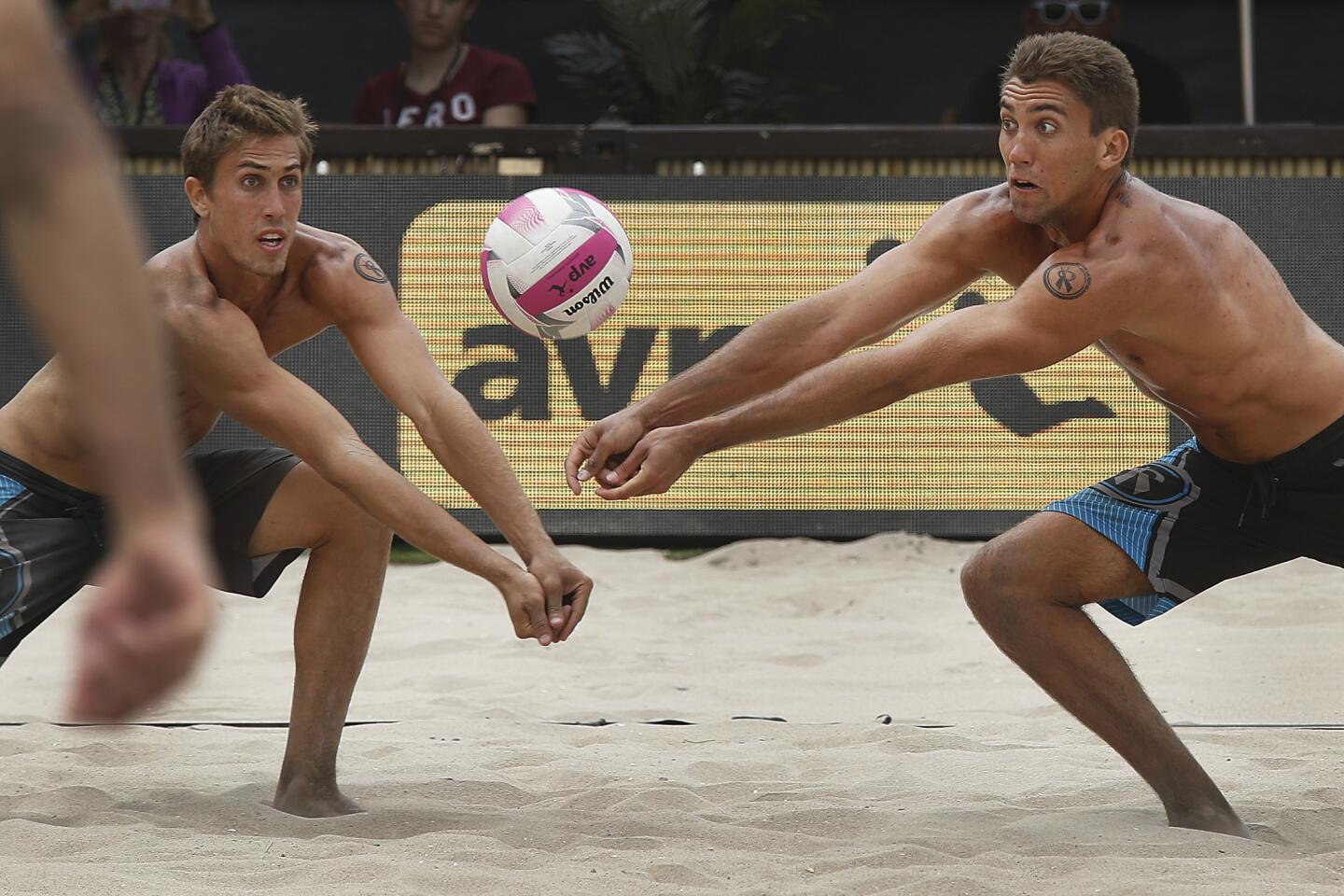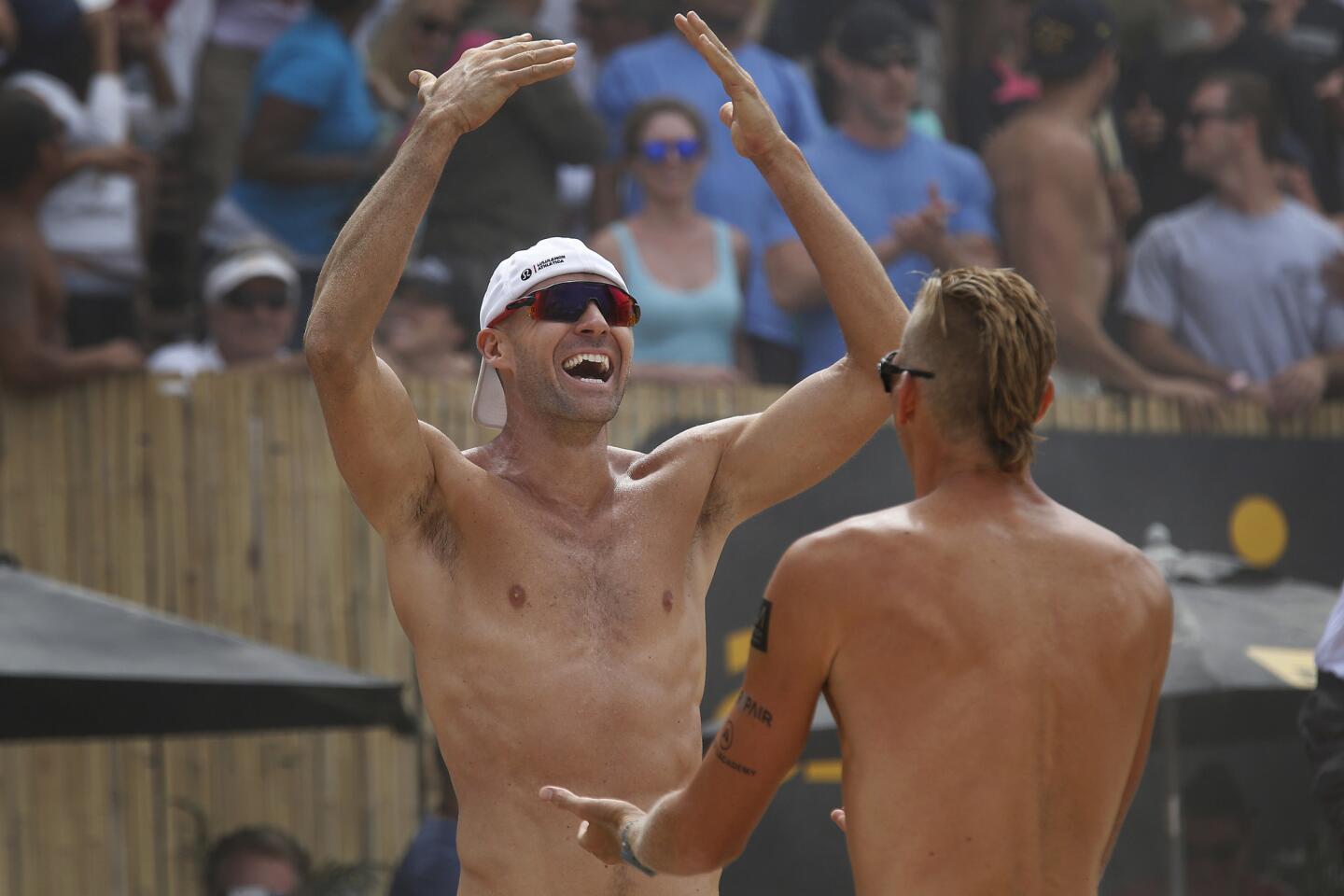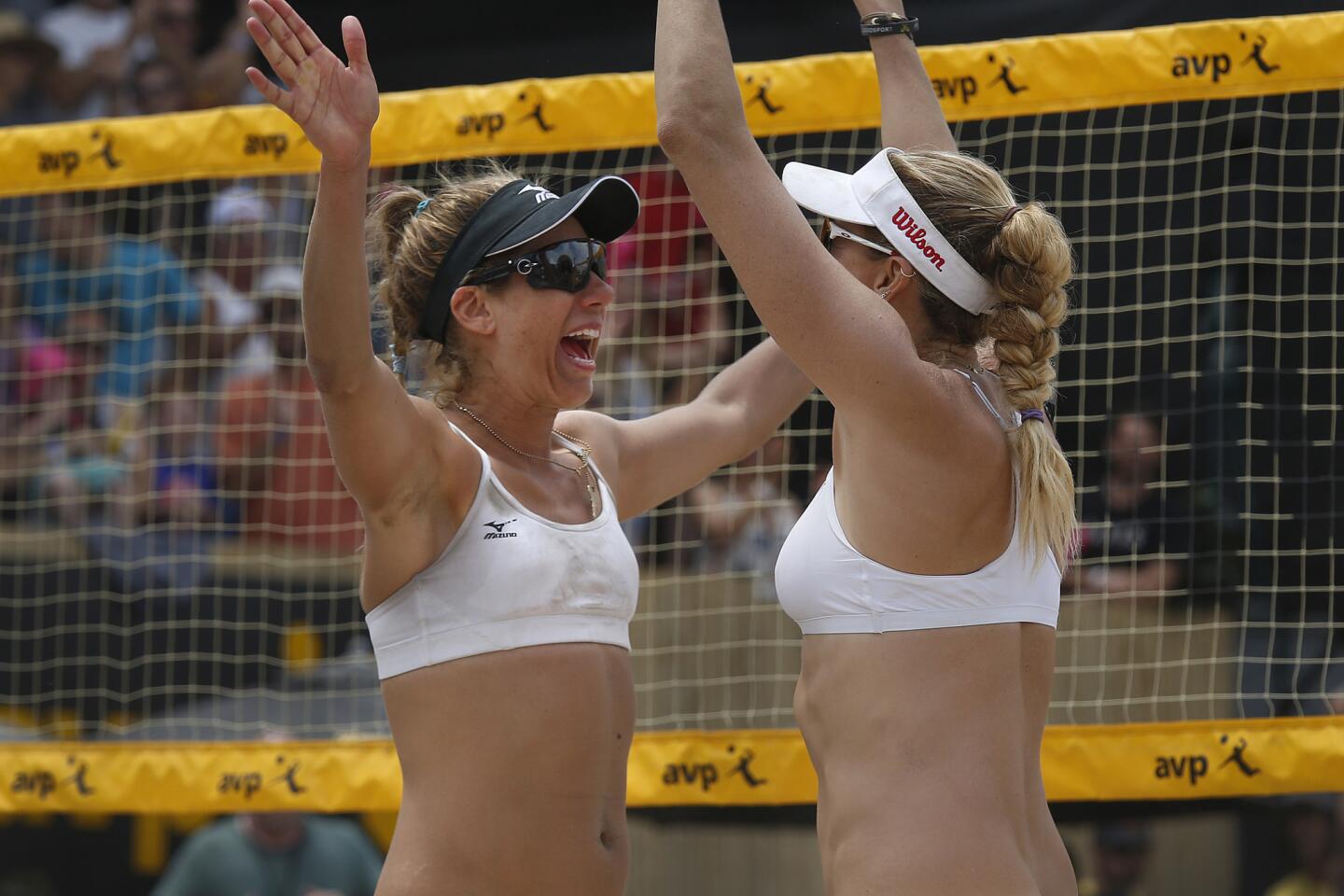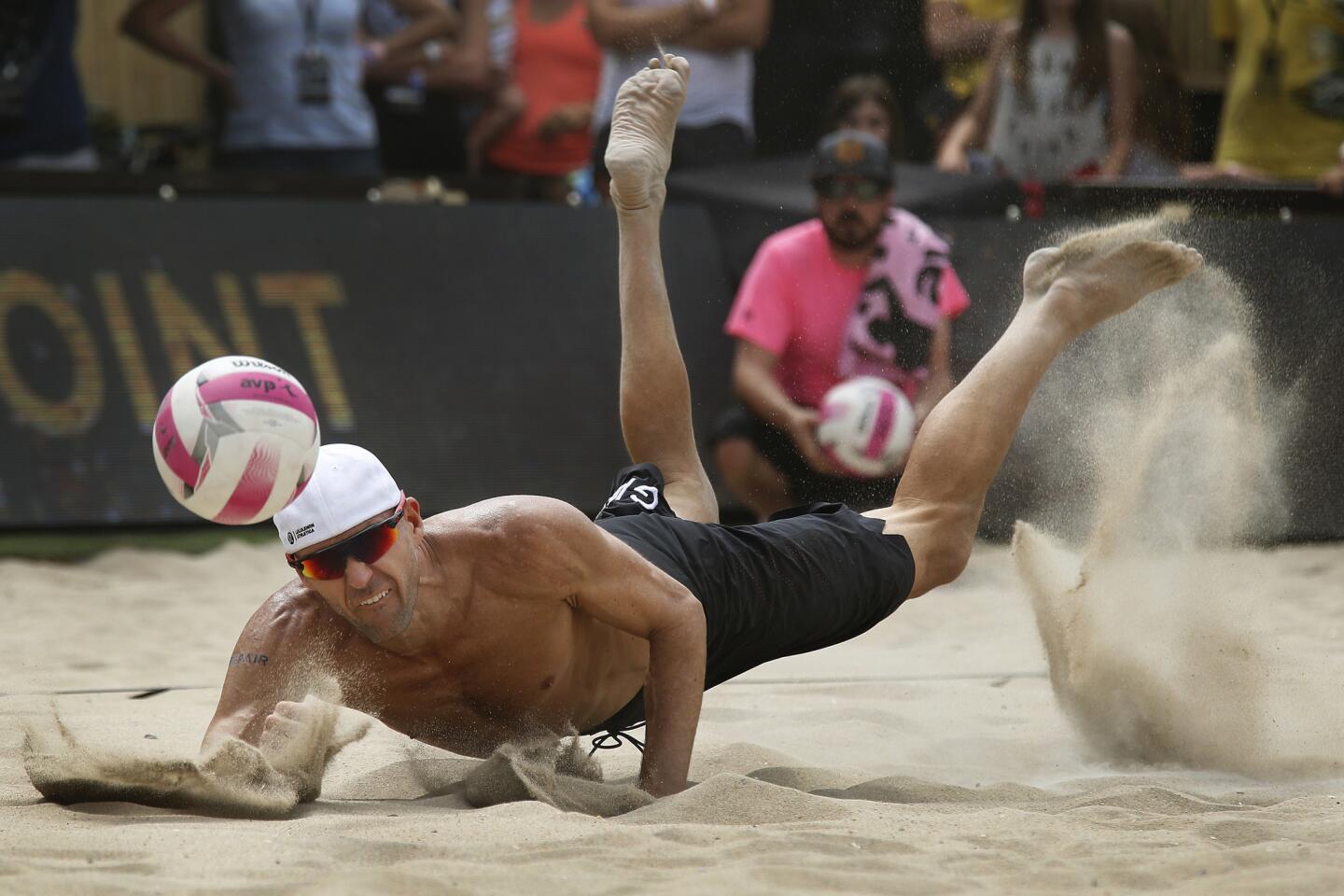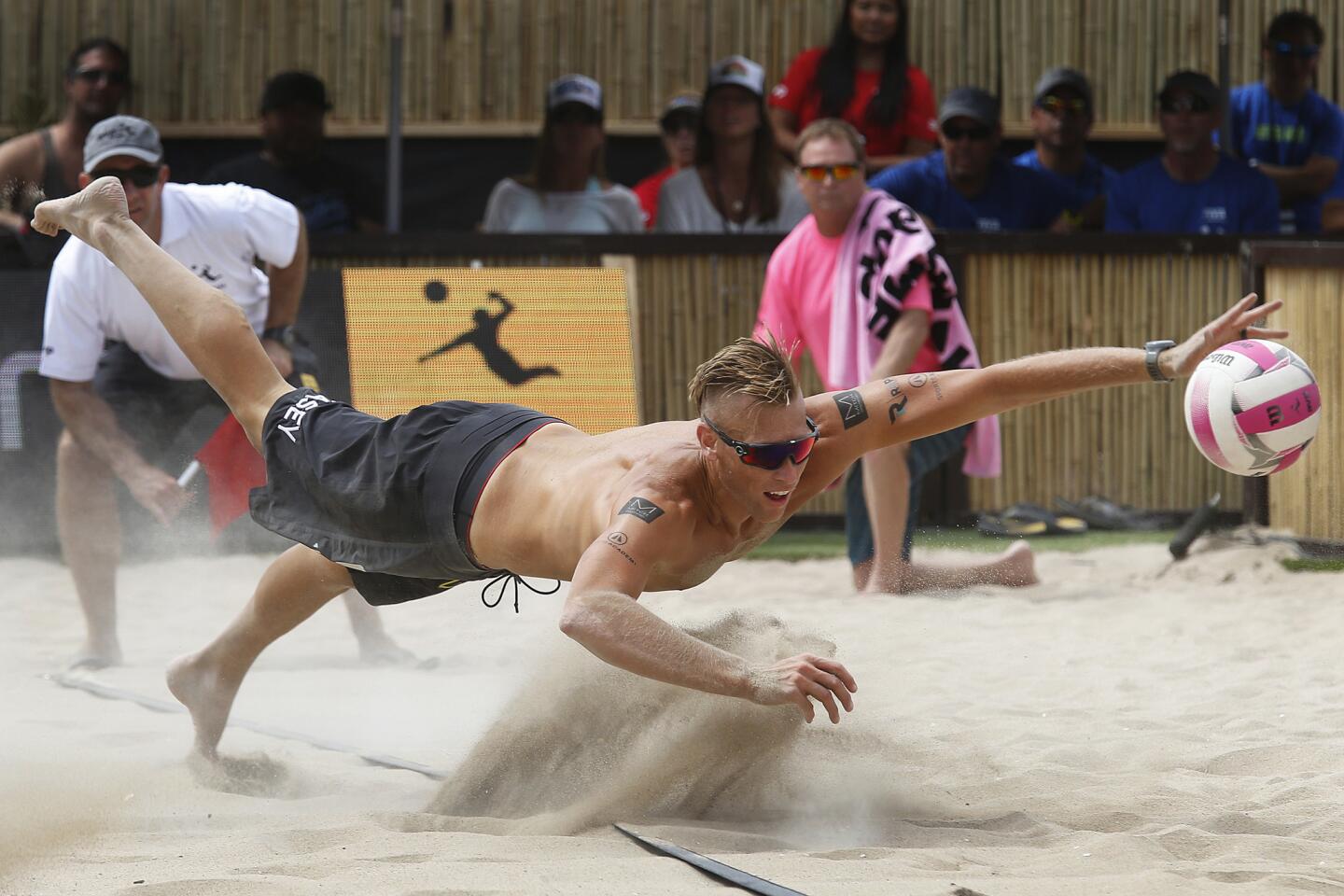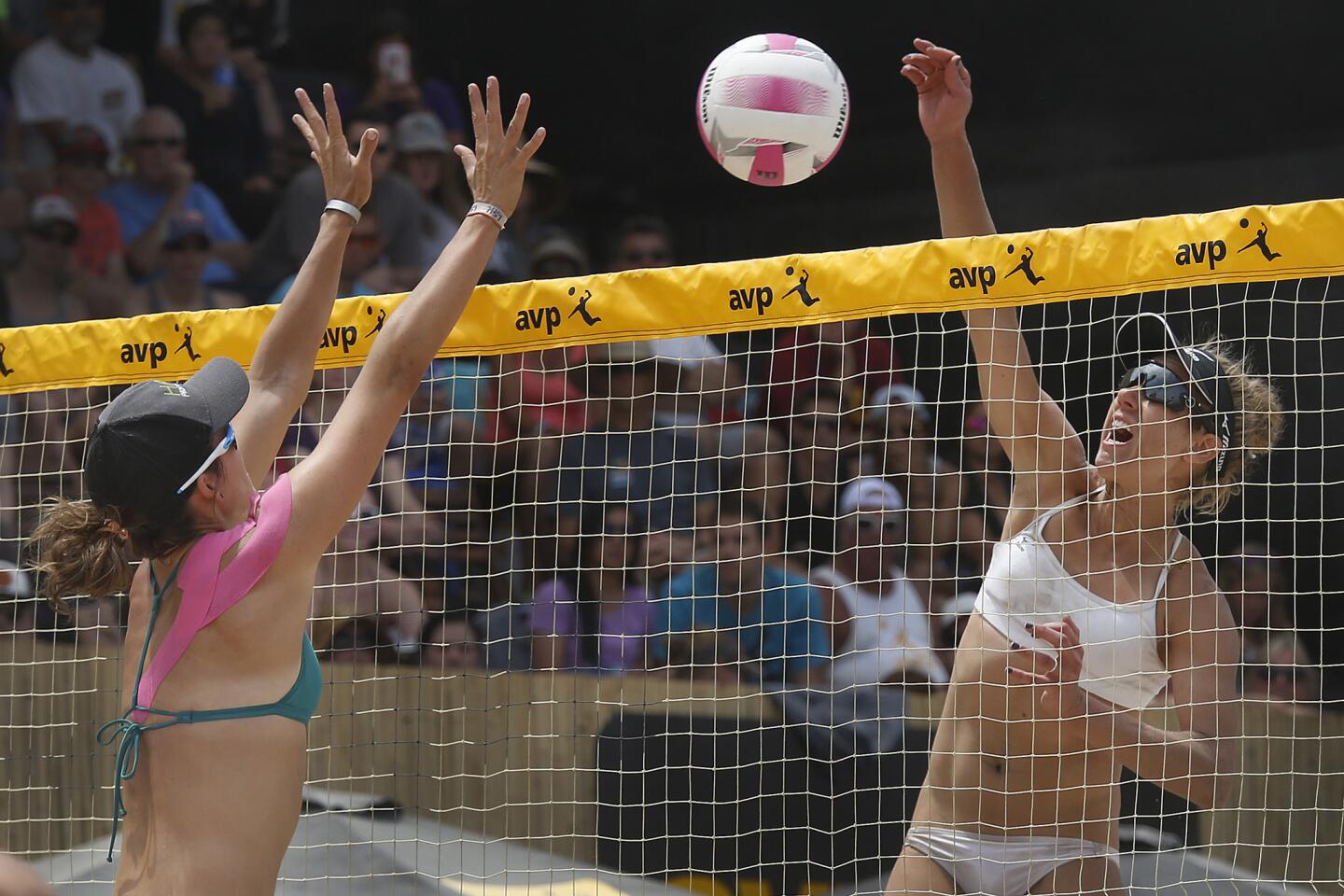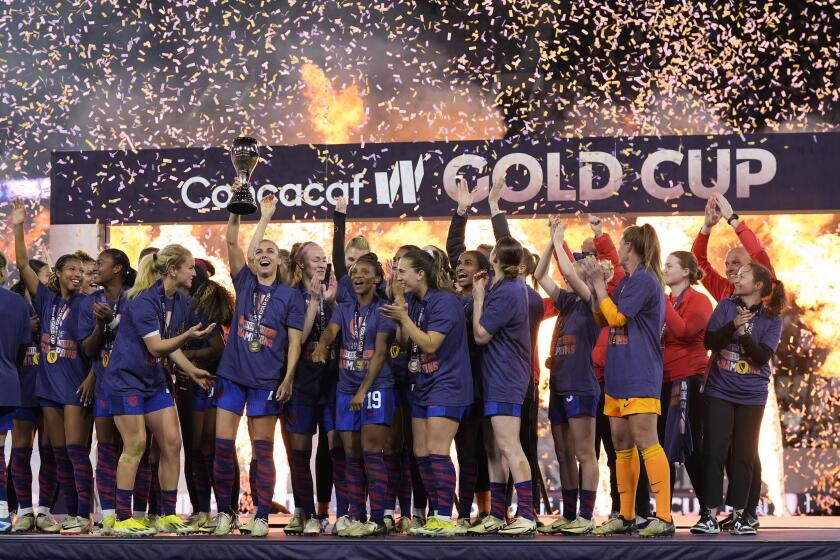There are no surprises in men’s and women’s title matches at AVP tournament
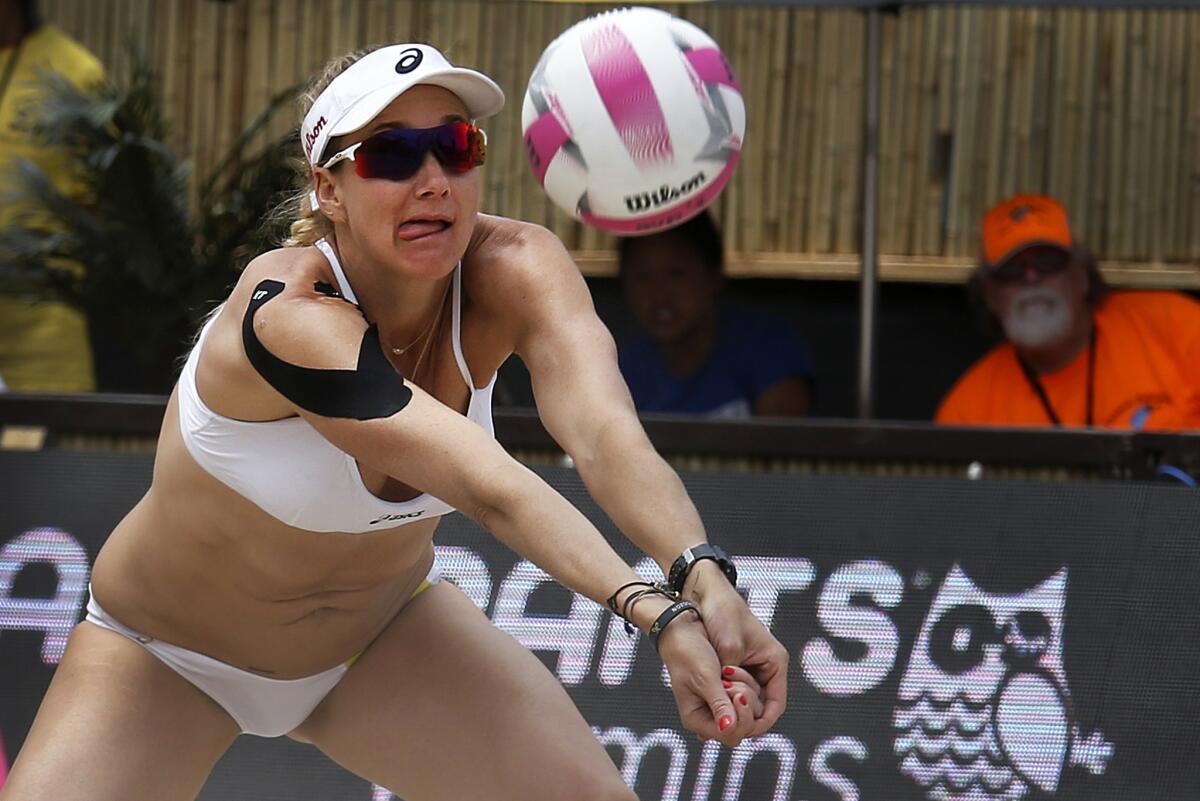
Kerri Walsh Jennings digs a shot during her and April Ross’ 2016 AVP Huntington Beach Open championship match against Angela Bensend and Geena Urango.
The sun rose in the east Sunday. The ocean at Huntington Beach did not boil and run dry. And Kerri Walsh Jennings and April Ross went another AVP tournament without losing a match.
None was ever very likely to turn out otherwise.
The pair won the AVP Huntington Beach Open by defeating Angela Bensend and Geena Urango, 21-13, 21-16. They have now won 46 consecutive matches on the AVP Tour, and nine straight titles. They didn’t lose a set during the event.
“It never, never, ever gets old,” Walsh Jennings said.
On the men’s side, Jake Gibb and Casey Patterson, likely one of the United States’ two pairs at the Summer Olympics in Rio de Janeiro in August, held off a feisty challenge from the young sibling duo of Trevor and Taylor Crabb.
Walsh Jennings, a three-time Olympic gold medalist, and Ross are the sport’s towering figures. On the AVP Tour, they are one of the surest bets in all of sports, at 54-1 all time as a pair.
The most pressing question at Huntington Beach was whether they would drop a set, something they’ve done only seven times on the tour.
They did not. Benend and Urango actually led, 15-13, in the second set on the championship match, but Walsh Jennings and Ross won eight of the next nine points. Walsh Jennings ended it on a block, the pair popped champagne on the sand and another title was theirs.
Afterward, Bensend and Urango said they know Walsh Jennings and Ross are beatable. Eventually, they will have an off day. But their dominance of the AVP Tour has made their winning seem inevitable.
Do they ever get bored?
Never, Walsh Jennings said.
“Winning is so hard,” she said. “We take everyone so serious.”
She turned to Ross.
“We’re addicted to improving,” Walsh Jennings said.
To stave off complacency, their coach, Marcio Sicoli, places them in stressful, uncomfortable training situations. In drills against opponents, he’ll put them at a disadvantage. Sometimes, he’ll schedule a practice at an unreasonably early hour, followed by a later practice when the wind has picked up.
Only afterward will he tell them he did it all purposefully.
“At first I was like, ‘Why are we making it harder on ourselves than it already is?’ ” Ross said. “But now I know him better. I know his reasoning.”
It’s a useful training trick, because their domestic tournaments are only occasionally comfortable, and almost never stressful. This time, they outscored opponents, 210-116, in five games, an average of 11.6 points against per set.
“They’re just so much stronger and work harder than anybody else,” Bensend said. “April’s jump serve is better than a lot of players when they’re attacking at the net.”
And Walsh Jennings’ combination of size and quickness has been an evolution in the sport, similar to how Kevin Garnett changed the power forward position in basketball.
The pair is almost certainly headed to the Olympics, where they’ll be among the favorites. Jennings Walsh underwent shoulder surgery in September. She is often asked about her shoulder’s status, because it is one of the few things capable of stopping the pair from finishing on the podium.
Her shoulder was never an issue this tournament. Walsh Jennings said that she’s feeling “great. Period.”
“I’m glad that storyline has passed,” Walsh Jennings said.
Ross, standing beside her, chuckled. “That’s the polite way to say ‘We’re not talking about it anymore,’ ” Ross said.
Health, and the benefits of youth, were debated after the men’s championship, when the veterans, Gibb and Patterson, heaped praise on their younger challengers.
“These guys are the future,” Gibb said of the Crabb brothers. “These kids are so good.”
Gibb and Patterson won is straight sets, but by the minimum margin, 21-19, 23-21.
It would be a major upset if Gibb and Patterson did not qualify for the Olympics, and the Crabbs are not serious Olympic contenders. But their energy level prolonged rallies and gave them a lead for much of Sunday’s second set.
At one point, Taylor Crabb ventured into the crowd, ducking past a television camera and weaving through onlookers in an attempt to save a near impossible shot. He was unsuccessful. The crowd, and even Gibb and Patterson, applauded.
“Do you think they cared that I’ve been to two Olympics?” Gibb said. “They didn’t. At all.”
He anticipated the match would be a grind, he said.
“Our bodies keep wanting to get old,” he said. “Weird thing when you’re 40 and 36. You’ve got to keep that at bay.”
Gibb added that one day somewhat soon, the Crabbs will surpass them. There is no fountain of youth, even for someone like Walsh Jennings. So, Patterson advised, you win while you can.
More to Read
Go beyond the scoreboard
Get the latest on L.A.'s teams in the daily Sports Report newsletter.
You may occasionally receive promotional content from the Los Angeles Times.
